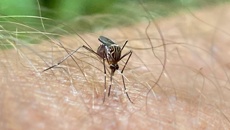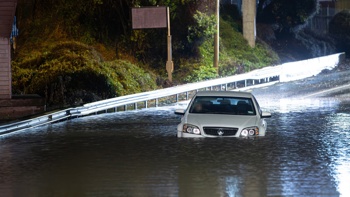Health Minister Andrew Little says Cabinet has approved funding for a pay equity claim for nurses, and has written to nurses, DHBS and the Ministry of Health to urge them to start negotiations on the claim.
He expected any final settlement to be the most significant yet on pay equity and be worth "hundreds of millions of dollars a year", but would not say how much Cabinet had authorised.
The Cabinet decision had given the green light to start those pay equity negotiations in earnest.
The pay equity component of the nurses' pay deal is separate to the increases to the collective agreement, he said, and had proven more complicated than expected.
He said it would be the most substantial pay equity claim in New Zealand so far, and urged nurses to start negotiating.
"Cabinet now knows and is braced for a significant sum of money that will go towards meeting this ambition," Little said.
"There nothing grudging about the Government coming to terms with pay equity for the nurses."
He said a pay equity agreement would add significantly to nurses' pay.
He did not know if it would impact on the likelihood of the nurses going ahead with their strikes, saying the pay equity claim and the collective agreement pay increases and negotiations over staffing and working conditions were two separate negotiations.
It comes after nurses voted to go ahead with strikes on August 19 and September 9-10, when they rejected the Government's latest pay and work conditions offer.
In July, the Nurses Organisation union (NZNO) agreed to consider the Government's pay offer and hold off strikes over July 29-30, but it was rejected in a ballot.
The union has said strikes planned for August 19 and September 9-10 would go ahead "unless an acceptable offer is made".
After the last rejection, Little issued a strong statement in response, while in a rare move also released the full details of the pay offer, which is still part of negotiations.
Little said the pay offer, worth $408 million, would put an extra $13,000 over the next year in the pocket of every fulltime employee covered by the collective agreement.
This included lifting base pay-rates by $1800 a year, plus a lump-sum payment of $1200.
It also included an advance on the settlement of the pay-equity claim, a $4000-a-year pay rise and a lump-sum payment of $6000.
Little said he was doing all he could to progress the pay-equity claim, lodged three years ago, as quickly as possible.
One of the core concerns from nurses had been around safe staffing levels and implementing the Care Capacity Demand Management, announced three years ago.
Little said just 10 of the 20 DHBs had even begun to implement CCDM.
Little said he acknowledged work on this had been slow and part of the latest offer included commitments to enforce CCDM, including conducting a ministerial review.
However, he said the nurses had not provided a better way to address their concerns and that the proposal was one proposed by the union in the first place.
"Let me be clear: the proposal was one they put to the Government. The Nurses Organisation rejected their own proposal."
In response, NZNO industrial services manager Glenda Alexander said Little's comments were "unfair" and while the union had helped form the proposal there were key issues they were still not satisfied with.
Lead advocate David Wait said earlier while the DHBs had made promising moves on pay, the offer contained "too many ambiguities".
"Members have been clear from the beginning that their safety at work and the safety of their patients is a priority, and that is where they most deserve certainty.
"Better pay will make nursing more attractive, but it is not clear how the DHBs will be held accountable if they do not provide safe staffing. Nurses don't want more vague promises that the problem will be fixed in the future - which is what we have received once again."
Take your Radio, Podcasts and Music with you









